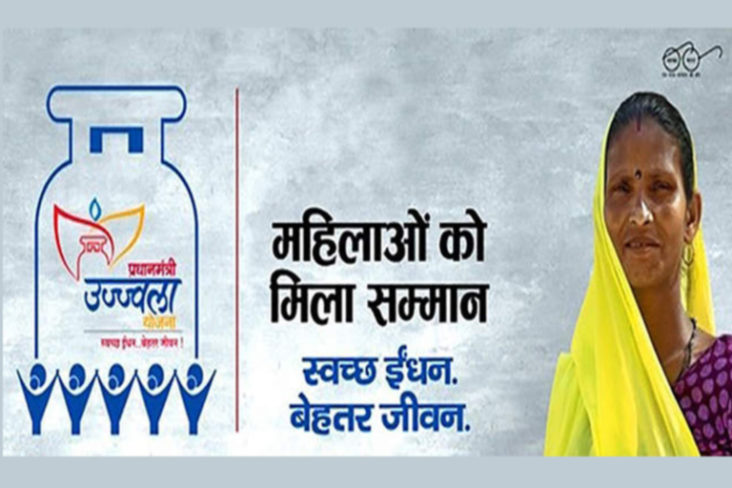What is Pradhan Mantri Ujjwala Yojana ?
The Pradhan Mantri Ujjwala Yojana (PMUY) is a government flagship scheme launched by Prime Minister Shri Narendra Modi on 1st May 2016 in Balia, Uttar Pradesh. The scheme plans the distribution of fifty million LPG connections to women below the poverty line. Later, it aimed to supply LPG connections to eight crore women by March 2020. However, this target was achieved seven months prior, in September 2019. Pradhan Mantri Ujjwala Yojana (PMUY) comes under the Ministry of Petroleum and Natural Gas. The Pradhan Mantri Ujjwala Yojana was designed to safeguard the health of women and the household from the consumption of unhealthy fuels by providing them with clean cooking fuel in the form of LPG.
Objectives of Pradhan Mantri Ujjwala Yojana
- Empowering women and protecting their health.
- Reducing the severe health hazards associated with cooking based on fossil fuel.
- Reducing the number of deaths in India due to unclean cooking fuel.
- Preventing young children from the significant number of acute respiratory illnesses caused by indoor air pollution by burning fossil fuels.
Benefits of Pradhan Mantri Ujjwala Yojana
- It provides 5crore LPG connections to families below the poverty line.
- The scheme provides financial assistance of Rs 1600 for each LPG connection to the households come under BPL. The executive cost of this support is borne by the Government. This subsidy is supposed for the security fee for the cylinder, pressure regulator, booklet, safety hose, and other fitting charges.
- Oil marketing companies also provide interest-free loans for refilling and buying stoves under this scheme.
- The Pradhan Mantri Ujjwala Yojana covers all the BPL families that come under all kinds of distributorship and distributes various sizes of cylinders (14.2 kg, 5 kg, etc.) as per the ground situation.
- The advantages of this scheme are available to the people of all Hilly States including the NE States (who are treated as ‘Priority States’).
- The scheme effectively addresses several difficulties faced by the people within the States of Jammu and Kashmir, Himachal Pradesh, Uttarakhand, Sikkim, Assam, Nagaland, Manipur, Mizoram, Arunachal Pradesh, Meghalaya, and Tripura in accessing LPG for cooking purposes.
Eligibility Criteria
- The applicant must be a female aged above 18 years and also a citizen of India.
- She should belong to a BPL family and no one else from the household should own an LPG connection.
- The overall monthly income of the family should not exceed a limit that is decided by the respective UT/State Governments.
- The applicant’s name should be within the list of SECC-2011 and should also match the details provided in the BPL database of the oil marketing companies.
- The applicant should not be registered under any other similar scheme run by the government.
How to register and apply for Ujjwala Yojana
- Obtain the application form from the nearest LPG distributor or download it from the official sitewww.pmuy.gov.in
- Fill in the details.
- Submit the form at the LPG distributor office.
Once the form is submitted and processed an LPG connection will be issued by various oil marketing companies.
Ujjwala Yojana 2.0
- Prime Minister has launched the 2nd phase of Pradhan Mantri Ujjwala Yojana (PMUY) or Ujjwala 2.0 Scheme on the occasion of world biofuel day 10 august 2021at Mahoba, Uttar Pradesh. He also mentioned plans to promote “gobar Dhan” – using cow dung for energy.
- Under Ujjwala 2.0 scheme additional 1 crore LPG connections will be provided to the beneficiaries and also government has set a target of providing piped gas to 21 lakh homes in 50 districts.
- It is intended to provide maximum benefit to the migrants who live in other states and find it difficult to submit address proof. Now they will only have to give “Self Declaration” to avail the benefit.
- Apart from a deposit-free LPG connection, a free refill worth over Rs 800 and a free stove will be provided.
- Ujjwala yojana will help India to become a $5 trillion economy by 2024-25.
- The scheme is implemented by Ministry of Petroleum and Natural Gas (MoPNG).

